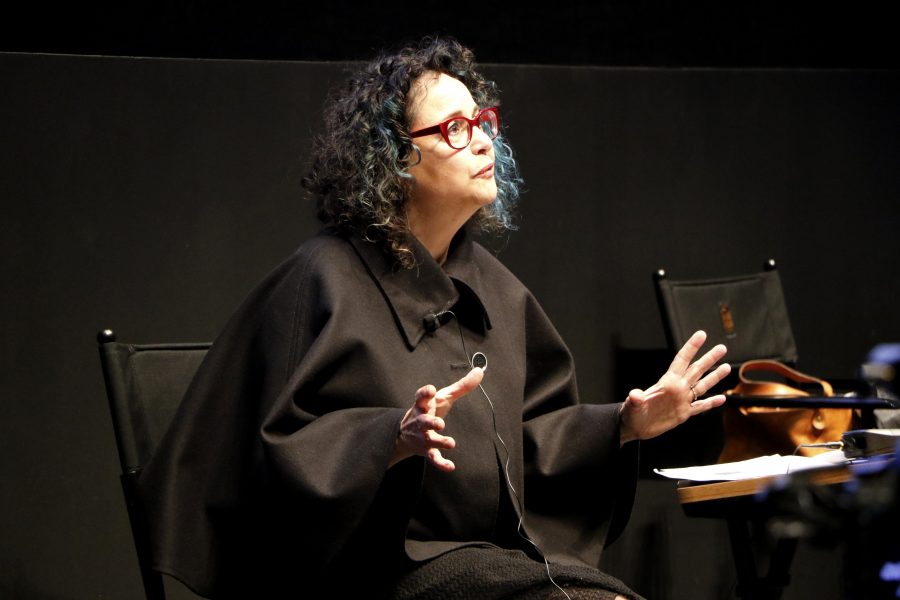Peabody Award-winning journalist Brooke Gladstone sees the “trouble with reality.” A reporter and current editor of “On the Media,” Gladstone said in her talk at the college that people need to start embracing points of view that don’t just make them feel comfortable but expose them to what’s really happening in the world.
If you only expose yourself to media that agrees with you, she said, this is not embracing reality.
“You have choices like people have never had choices before. We are absolutely buried in distraction, which is a technique that this administration has used. [Trump] fills the air with shiny objects and the reporters go after them like dogs after squirrels and they’re easily distracted,” Gladstone said.
Gladstone said that she had to do a piece on Monday morning that she wasn’t expecting to have to do–one on the Las Vegas shooting. She said that when writing this piece, she drew on her experience about how media outlets and politicians react.
“Let’s begin with what they all said. ‘This is the biggest mass shooting in the nation’s history.’ Endlessly repeating that this is a new high in mass shootings deaths is a narrative frame that makes the event seem not only tragically horrific, which it is, but also makes it seem truly exceptional, which it is not,” due to the number of similarly horrific shootings that have happened in the last 10 years, Gladstone said.
Gladstone noted that often politicians are quick to say that “this is not the time” to be talking about creating policy after a tragic event occurs.
“They’ll say ‘this isn’t the time to talk about guns or about our policies. This is the time to send our hopes and prayers,’ but that is just an opportunity to check the empathy box for most of those politicians,” Gladstone said.
She also returned to a handbook that she helped create several years ago, which she called a “Breaking News Consumers Handbook” for mass shootings. She laid out the several points her handbook makes.
The first point Gladstone’s handbook makes is the importance of realizing that news outlets “will always get it wrong in the immediate aftermath.” Gladstone warned against trusting anonymous sources or outlets that cite other outlets. The next rule of the handbook was to recognize that there is almost never a second shooter in these situations.
Her next point was on the importance of paying attention to the language used by the media. She also said that often going to the most local news outlets will provide the most accurate information. Gladstone’s final point from her handbook said to recognize that “big news brings out the fakers and the photoshoppers.”
As she continued, Gladstone discussed the fear of change that members of society often have, especially when it comes to technology. She touched on the Internet as something that was once a main source of fear.
“What the internet does is make you more of what you already are. For the bitter or spiteful, it provides endless opportunity for more malice and aggression. For the innocent, dangerous lurk on every click,” Gladstone said.
At the end of her discussion, Gladstone argued that in order for people to see a true reality, they must make their reality “bigger.”
“We absorb unnecessary affirming information because it makes us feel good,” Gladstone said.
Gladstone challenged audience members to delete an app they are constantly checking and to put their phones away when they are going from place to place.
“We hate to be bored, and people who have grown up with cell phones have probably never known a minute’s boredom,” she said. “But they say that it is in those moments of boredom, when you have those great ideas.”





















































































































